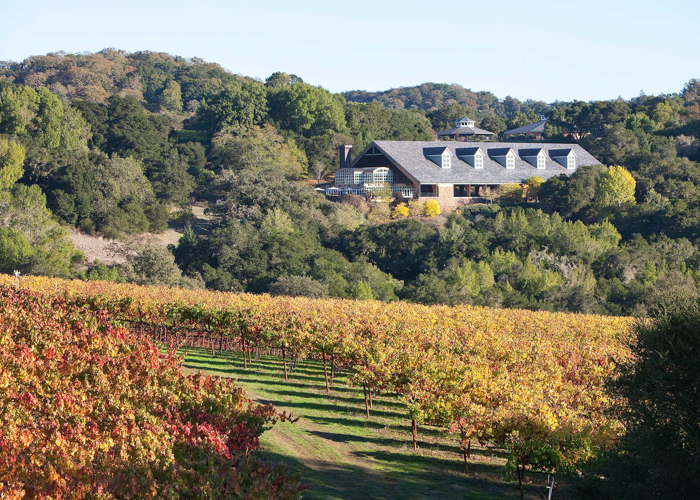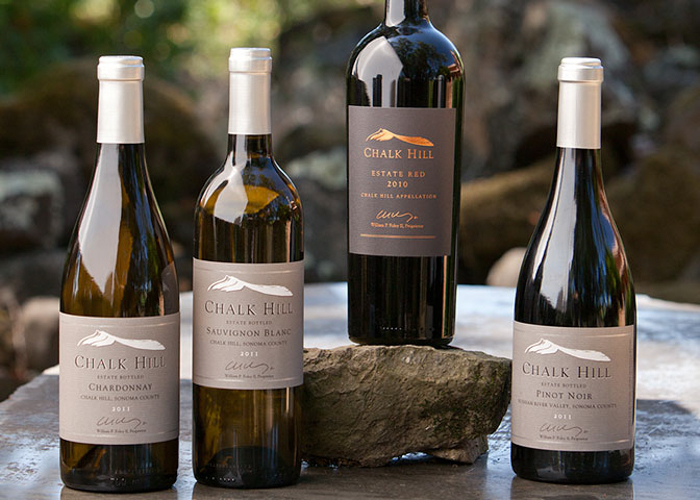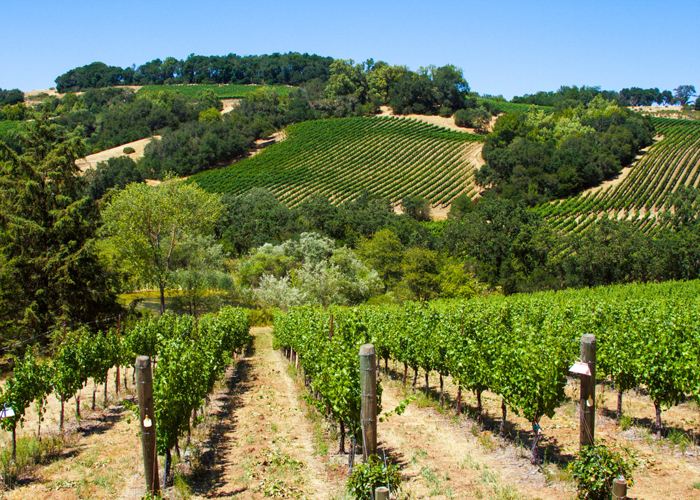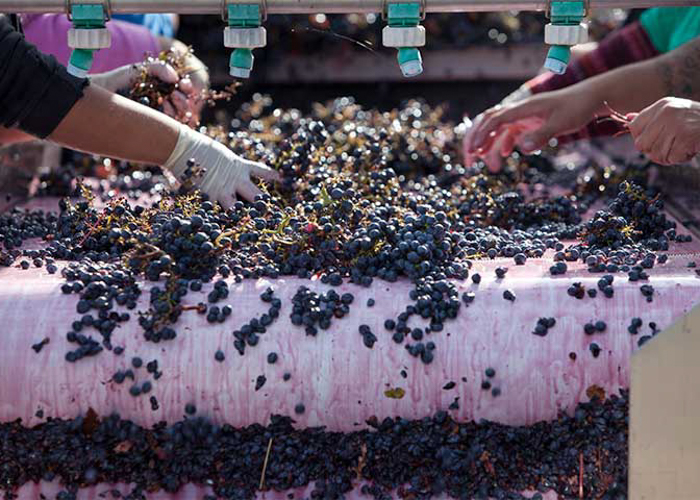Chalk Hill
Perhaps no other winery captures the casual luxury of Sonoma County better than Chalk Hill Estate. Founded nearly four decades ago, this spectacular 1300-acre property features 300 acres of vineyards, wilderness areas, winery, hospitality center, culinary garden, residence, stables, equestrian pavilion, sports fields, fishing and swimming ponds, and guest houses.
On a spring day in 1972, while piloting his plane over the Russian River, Chalk Hill’s founder, Fred Furth, caught his first view of a natural amphitheatre carved into the hills of eastern Sonoma. His intuition told him the land had the potential to support a world-class vineyard. A subsequent tour confirmed that the spectacular property indeed had the climate and soils to grow luxury-class wine grapes.
Winemaker Courtney Foley, and her dedicated staff gently shepherd the grapes through the fermentation process to the bottle. With an estate-wide, shared aesthetic, the process is light-handed, non-invasive, and sustainable, allowing each bottle to emulate the essence of the vineyard. The amount of French oak, either new or neutral, is carefully chosen to add complexity and compliment the mid-palate sweetness of the wine. They take great pride in bottling our wines without filtration, allowing the most complete expression of the grape's potential to enter the bottle.
The Chalk Hill AVA is named for the chalky white ash that characterizes the soils. It's volcanic in origin, not actual chalk, despite the appearance of a bright cut in a small hill along Chalk Hill Road bearing a pair of signs that announce, 'Chalk Hill'-it's volcanic tuff. Although Chalk Hill is a sub-appellation of the Russian River Valley AVA, it's somewhat warmer here, with moderating breezes but less cool fog. From the town of Windsor along Highway 101, Chalk Hill extends east into a jumble of hills, opens to a pretty little valley planted in vineyards, and continues to 1,600 foot elevations tucked between Alexander Valley and Knight's Valley AVAs. The lower, cooler sites are perfect for Chardonnay while the steeper, warmer, south-facing slopes are superbly suited to ripen Bordeaux varietals.




